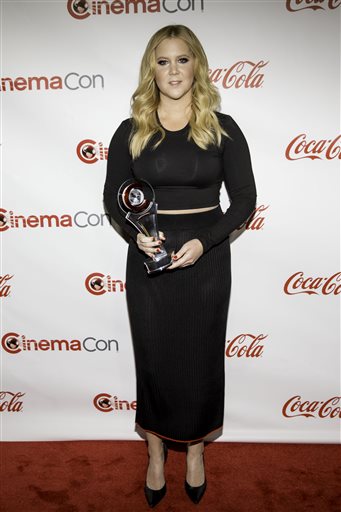
By Emma Carey
Last April, Cecily Strong, the 32-year-old “Saturday Night Live” cast member and comedian, boldly opened her speech at the 2015 White House Correspondents’ Dinner stating, “I promise, I’m not going to try to tell you politicians how to do politics, or whatever. That’d be like you guys trying to tell me what to do with my body . . . could you even imagine?” The bitingly sarcastic burn was followed with an uproar of laughter and applause by celebrities and bigwigs alike.
Over the past few decades, comedians like Strong have been increasingly incorporating controversial societal issues into their work, providing a bit of relief to such topics as well as “breaking the ice” for further conversation. Unbeknownst to many, however, this style of comedy was not always popular. In fact, until the break-out of standup comedian George Carlin, who pioneered the concept of discussing taboo topics in comedy in the mid-1960s, most comedy was nothing short of fluffy and, generally, politically removed. Today, these hard-hitting topics have become more than just the butt of a handful of punch-lines in a stand-up set. The controversial issues and concerns of our society are now, more often than not, the main focus of comedy productions. Our current media coverage has become an integrated pow-wow of politicians, scholars and comedians alike, all discussing the same issues in their own fashion, and the conversations are heating up.
Comedian Chelsea Handler, most commonly known for her late-night talk show “Chelsea Lately” on E! Network, is taking to the floor to give her own two cents on such topics in her new Netflix documentary series, “Chelsea Does . . .” To provide a gist of just what Chelsea does in this series, the episode list is studded with titles: “Chelsea Does: Marriage,” “Chelsea Does: Racism” and “Chelsea Does: Drugs.” While the series sustains Handler’s trademark style of crass humor, as one of her interview tactics includes questioning pre-schoolers on what the New York Times describes as “inappropriately grown-up subjects,” the show also holds some real weight and makes brave conversational strides as well. Similar to her past talk show, Handler frequently invites guests onto the show, adding a bit of diversity as well as expanding her social conversations. In Handler’s episode on “Racism”, scholar Darnell Hunt of UCLA eloquently explained the connection between stereotypes and a “political agenda that’s about certain groups being able to dominate other groups.” The four-part series is available on Netflix, and is rated 4.25 out of 5 stars.
Current golden girl of the comedy world Amy Schumer has also used her new MVP title to act as a public mouthpiece for the political hot topic of gun control. This past October, Schumer joined her cousin, Sen. Chuck Schumer, on the steps of New York City Hall to encourage Congress to pass gun legislation. Schumer shed her typically playful tone for the speech, having been inspired to join efforts after the July shooting that took place inside of a Lafayette, Louisiana, movie theater screening her film, Trainwreck. Schumer stated in an August press conference that while she is “not sure why this man chose [her] movie to end those two lives and injure nine others… it was very personal for [her].” The comedian has also taken to social media, encouraging her followers to tweet “#aimingforchange” in support of the political efforts.
Strides by comedians like Handler and Schumer have been steadily accompanied by the more familiar combination of social commentary and comedy: political comedy shows. While comedians like Stephen Colbert and Bill Maher continue to add to their massive viewership, many newcomers have entered the ring to take down today’s presidential candidates and legislative controversies as well. Trevor Noah, Jon Stewart’s “Daily Show” successor, adds a more objective viewpoint to many issues as a South African native. However, newcomers like Noah have more pressure to perform than just rating concerns. In a 2009 Huffington Post poll, research found that almost 39 percent of adults considered political comedy shows to be a major news source and political influence for Americans.
While the rumor mill of American society does not appear to be ceasing any time soon, comedians are taking their cue to jump into the taboo topics often avoided by traditional entertainment media. For some, this now widely accepted combination of controversy and comedy means more material and a better chance to relate to audiences. However, many comedians seem to also be using their roles as an opportunity to get more than just a laugh. Comedians in our society are no longer distracting court jesters of the American kingdom. Rather, they are mouth-pieces for the public of America. With the upcoming election as well as a massive rise in social movements like Black Lives Matter and gun legislation, Americans will likely notice an audible voice of more and more comedians joining in on this national discourse.





































































































































































































